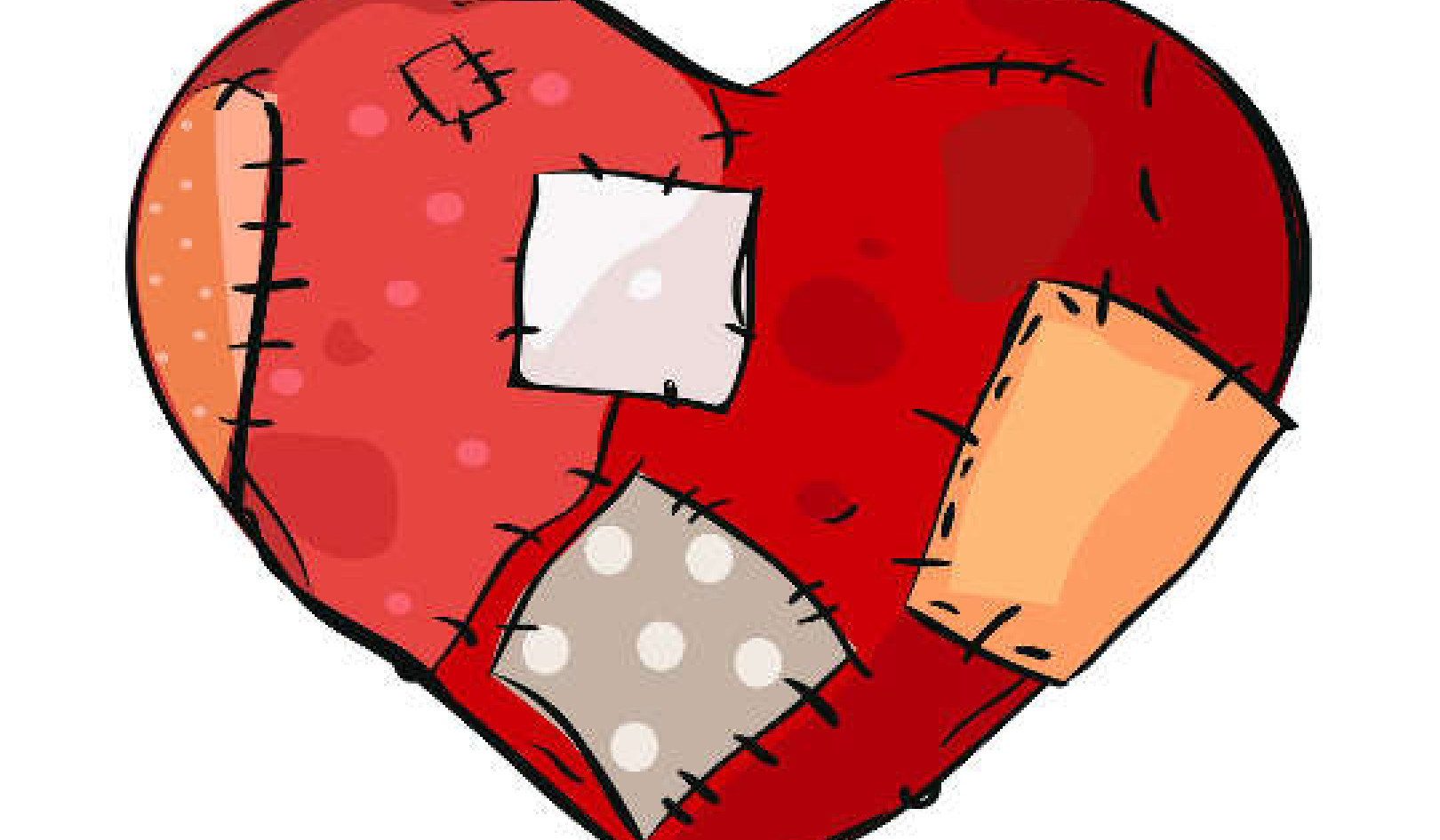
Mankind in all ages has had a strong propensity to conclude that wherever there is a name, there must be a distinguishable separate entity corresponding to the name. -- John Stuart Mill
Is it possible that people who are diagnosed with cancer die of a sophisticated form of voodoo? Does the victim's belief in the power of vicious cells, like belief in the power of a hex, lead to his death? "Cancer" is a demon word -- the destructiveness of cancer begins as soon as the diagnosis is uttered.
The dread label starts a Rube Goldberg reaction: The word strikes terror to the heart; terror releases gushes of adrenaline; the outpouring of adrenaline upsets normal biological functions and weakens the immune system; and the weakened immune system permits cancer cells to proliferate. The word, we are incessantly warned, demands immediate action, and so terrified patients place themselves in the hands of physicians who insult their already fear-damaged bodies by attacking them with chemotherapy and radiation.
The urgent extremes of cancer treatment are based on a commonly held and, some doctors believe, false understanding of its nature. These doctors maintain that cancer cells are systemic, that all of us are developing and ridding ourselves of cancer cells all the time, and that "our body defenses recognize them, attack them and take care of the matter." But most doctors disregard this evidence that cancer cells come and go; rather they view cancer as a localized cluster of cells gone crazy.
Two Different Approaches
The role of the individual is very different in these two formulations. If we are developing cancer cells all the time, then we can control them in the same way we do cuts and bruises -- by the body's natural healing processes. But if cancer is a berserk bunch of wildly proliferating cells that seem to have a mind of their own, we need to hire mercenaries to help fight the battle.
The language associated with cancer, the metaphors used to describe the disease, engrave it in our minds as a spreading spider's web or an omnivorous octopus that invades and engulfs.
Words act as powerful placebos in all diseases, not just cancer. They also act as powerful nocebos -- that is, they can produce deleterious rather than salutary effects. ("Nocebo" is a word coined to contrast with placebo. It means "to harm" rather than "to please.")
A good example of the way words alone can affect the course of a disease and its treatment is found in the case of hyperparathyroidism, a disorder in the regulation of blood calcium. The disorder is seldom life-threatening and -- while most doctors would recommend removal of the thyroid if the malfunction is severe -- its mild form is hardly worth troubling with. Until multiple-component blood testing became part of routine examinations, the disease was rarely detected.
Since testing became routine, however, surgical removal of the thyroid is almost standard treatment. The large number of patients who had a mild, previously undetected condition and were undergoing surgery prompted an investigation by the Mayo Clinic.
The investigation revealed that the mere naming of a disease is a more powerful indicator of treatment than the disease itself: One group, randomly selected, was assigned for immediate surgery. The other group was told they had mild hyperparathyroidism and that surgery was available if they desired, but was not essential and was not assigned. Yet each and every person in the second group elected to have surgery!
Telling them they had the condition actually made the condition worse or made the person perceive it as worse. As one of the investigators pointed out, "The anxiety of having a disorder that could be surgically treated was simply too discomforting" -- never mind that the risks attending anesthesia and surgery were greater than the risks of mild hyperparathyroidism.
Word Power
Linguists have identified phenomena that they refer to as "verbal realism" and "symbol realism." These terms mean that the mind responds to words or iconic objects as strongly as it would to the things they represent. In symbol realism, the sight of a symbolic object, for example the flag of the United States, can evoke patriotic feelings so intense that people are willing to die to protect it -- a piece of red, white, and blue cloth, in effect, has become the virtual country.
In verbal realism, a word carries the emotional power of the real thing. A person uttering an ethnic slur, like "nigger," for example, can arouse as much anger as if the speaker had actually assaulted an African American. "Nigger" or "kike" or "wop" takes on a life of its own and causes a bio/emotional reaction: "Them's fight'n words," as our Western heroes say. Apply this language phenomenon to the area of health, and you can see that a word or symbol can make you ill.
Language used as an instrument of power is probably coeval with language itself. The magician, standing within the magic circle, can summon by incantation the powers that will cure or kill. In some cultures, one's true name must not be spoken, as one's soul would escape on the breath that carries the word.
In many religions, speaking the name of a god captures the essence of that god and brings him forth. Among Jews, on the other hand, God's name must not be pronounced, for saying the name would defile him.
In Judaism, the most potent words are found in the Torah where God himself connects his words with healing: "If thou wilt diligently hearken to the voice of the Lord thy god, and wilt do that which is right in His eyes, and wilt give ear to His commandments and keep His statutes, I will put none of the diseases upon thee which I have put upon the Egyptians: for I am the Lord that healeth thee."
When Jesus cured the blind man at Bethsaida, he knew that it was imperative to keep him away from the society of those who believed in and spoke of disease. After the man's blindness was healed, Jesus instructed him not to return to the village, but to go directly to his own home.
The language of medicine has a profound effect upon the practice of medicine. As far back as can be traced, physicians have recognized that merely to name a disease, merely to prescribe a remedy, merely to don medical vestments, causes something to happen in the body of the patient.
Is It Magic?
In our society, scientific terms are magical. Call an over-the-counter allergy pill "anistophymilycin" and you give it the enhanced healing power of a prescription drug. Doctors have empowered placebos by calling them by names that sound scientific, such as "tincture of Condurango" or "fluid-extract of Cimicifuga nigra."
If language, by its effect upon mind, causes prejudice against a race or a gender; if the words used to describe people, such as "cripple," "snot-nosed kid," and "bimbo," influence our behavior toward them; if spreading the word that a company's stock is valuable can raise the price of that stock regardless of the performance of the company; if the scent of a woman's perfume in a room after the woman has exited can produce not only amorous feelings but even an erection -- how can we refuse to see that words and symbols create our concepts about health and illness, and that these concepts affect our health? If we do refuse to see this fact, it proves that our mindset is influenced by the spell of language more in the domain of medicine than elsewhere.
Scientists focus on the physical world largely because only physical phenomena can be measured, regulated, and duplicated. The effects of symbols cannot be controlled. The effects of symbols are attached to the unique situation and the unique individual: Emotions a person may feel when he sees the American flag will be different today than tomorrow, and different at a US post office than in a foreign country.
Symbols are the proverbial river that cannot be stepped into twice. Yet the effect of any given symbol on the biology of any given human is as real as anything science can reproduce in a controlled study.
If a woman doesn't eat because the word "fat" and the symbolism of fatness terrify her, she is as skinny as if she had cancer of the stomach. Because control and replication are requisites of the scientific method, science dismisses as unreal or untrue empirical evidence that can be verified but not precisely duplicated -- that is, science dismisses the empirical evidence of practically everything in life. To paraphrase Lao-Tzu, "If you can name it, it isn't that." I might add, "If you can prove it in the laboratory, it isn't so."
A Disease By Any Other Name...
Someone said, "Diseases that do not have names do not exist." The fearsome corollary to that observation is that diseases can be made to exist by naming them.
In 1975, Agence France-Presse carried a report on a disease called Koro, a Javenese word meaning "the head of the turtle." The disease was attributed to eating "tunny fish" and was supposed to cause the penis to wither. The disease spread to Malaysia and south China where it was known as Shook Yang, (shrinking penis). Men afflicted by this malady lived in terror of dying and tried to prevent their penis from disappearing into their abdominal cavity by holding it with clamps, chopsticks, clothes pins, or even safety pins. "In some instances," the French paper reported, "relatives would take turns 'to hold on to the penis,' and sometimes the wife was asked to keep the penis in her mouth to assuage the patient's fear."
No one knows the origin of this fictional disease. It was entirely a product of autosuggestion or what Phineas Parkhurst-Quimby and Mary Baker Eddy would have called false belief, yet Koro reached epidemic proportions.
If we are to take our health into our own hands, we need to understand that symbol realism and verbal realism, which have absolutely nothing to do with actuality, permeate medicine. We respect and entrust our healing to the person identified by the rubric "doctor," irrespective of the verifiable and proven healing capabilities of that individual. How many of our "diseases" are "nondiseases", pure figments of the imagination made real by symbols and words? Quimby and Eddy would say all of them.
Show Me The Money
I don't mean to question the motives of doctors. Certainly many, perhaps most, are devoted to helping others. But we can't disregard the fact that when doctors treat "non-diseases", they reap handsome monetary rewards. There is no profit to be made if there is no treatment.
Whether intentionally or not, we are taught that an elite group possesses abilities unavailable to the rest of us, and wampum, greenbacks, cash, or colored beads flow continuously from the helpless to the ones who come to save them.
Our language establishes a materialistic perception of life: "It's all in your mind," we are told, or "It's just your imagination" -- meaning of course that whatever it is, it isn't real. How different our lives would be if from earliest childhood we heard that it is all in your mind and that your imagination creates what happens to you.
It's All In Your Mind... and That's A Good Thing!
How different our health would be if instead of, "it might be serious, go see a doctor," we were told, "Don't give it a thought, it's only a microbe," or, "Don't waste your time taking medicine, put your mind to it instead, put your imagination to it." If we could think of the words "mind" and "body" as semantic distinctions -- not actually two different things -- then we would be on the road to lifelong health.
Unfortunately, the language available for intelligently describing states of wellness is very spare. We have psychobabble and New Age banalities that really don't help dislodge the semantic system that keeps medicine entrenched in our minds and thereby in our lives.
How can we find our way out of the trap of language? This disturbing question may be asked of every culture's values. In America, unlike other far more insular societies, we have access to alternative attitudes and alternative practices that break through the monolith of convention. We can give credence to ideas and testimonies that contradict the rhetoric of organized medicine. "A road is made by people walking on it," says a Zen master.
Reprinted with permission of the publisher,
Origin Press. ©2001. 2013. www.originpress.com
Article Source
Faith and the Placebo Effect: An Argument for Self-Healing
by Lolette Kuby.
 In an inspired study of the unacknowledged power of the placebo, Lolette Kuby argues that the common denominator across all forms of treatments for illness is an innate self-healing capacity that medicine calls the placebo effect and that religion knows as faith healing.
In an inspired study of the unacknowledged power of the placebo, Lolette Kuby argues that the common denominator across all forms of treatments for illness is an innate self-healing capacity that medicine calls the placebo effect and that religion knows as faith healing.
Info/Order this book (newer edition, different cover). Also available as a Kindle edition.
About the Author
Lolette Kuby, Ph.D., has been a widely-published poet and critic, a political activist and advocate for the arts, and a university English teacher and professional editor and writer. Uncertain in her beliefs, there was little in her previous way of life that prepared her for the healing epiphany and spiritual revelation that led her to develop the radical argument presented in Faith and the Placebo Effect. For more info , visit her website at www.lolettekuby.com
























